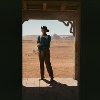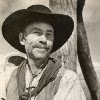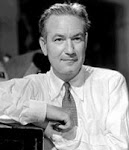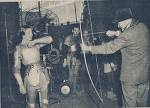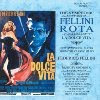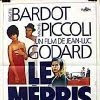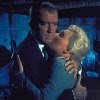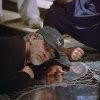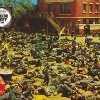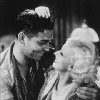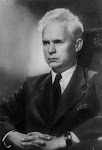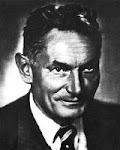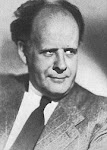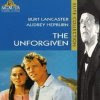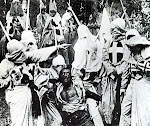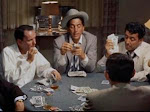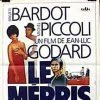One of the few really useful things I took from Psychology 101 was the notion we can have "screen memories": false certainties based upon what we've seen or heard of this or that event, a kind of psychic equivalent to arguments post hoc ergo propter hoc. I have screen memories of Henri Langlois because he figures prominently in Bertolucci's poignant memoir of the mid-60s Parisian film kultur and the roles played not only by the famed curator of the Cinemateque but by his protegees in the left-leaning New Wave movement. Without Langlois, there would never have been a New Wave. He was the Godfather of Us All.
The Dreamers lovingly caught those moments in time; so what if it is not Bertolucci's best work. He's done so many superb movies he could simply rest on his laurels, but he keeps at it. But this was not be best portrait of Langlois. That came in the documentary, The Phantom of the Cinemateque, which was utterly fascinating, delving as it did both in Langlois' cadging of rare movie prints from reluctant or unwilling sources the world over as well as his dedication to film such that he made no distinctions in his programming: you might be watching a Kurosawa Shakespeare one night and Vincente Minelli's Some Came Running the next.
I could not have met Langlois in '65, when I was in Paris and had memories of the riots of '68, but I am almost certain I did. That is the power of a Bertolucci or of the creator of the Langlois documentary, Jacques Richard. Everyone has seen photos of the Bolshevik Revolution and sworn later they were documentaries, when in fact, they were from Eisenstein's version, Ten Days That Shook the World (shown here by that title and as October). For years documentary filmmakers, perhaps thinking that because Eisenstein is dead and the Soviet Union far away, must have felt they had free use of such silent footage; they've pirated Leni Riefenstahl's Triumph of the Will and cut it, too, into documentaries about the Nazis and especially Hitler.
Langlois's willingness to sit through any film ever made by anyone on any budget, any crew, any cast of actors, and any and all other criteria pertaining to the medium was the inspiration, on this side of the Atlantic, for the "Cult Film" sections of rental markets, both VHS and, later, DVD'S. One found oneself sitting through, say, Edgar G. Ullmer's The Black Cat and wondering, "WWLT" (What Would Langlois Think). He might begin with how authentically presented in the film is that branch of occultism known as ceremonial magic: notice the inverted pentagram above the sacrificial altar?
But then Langlois might have thought such carefully concocted literary gems as Albert Lewin's 1943 Maugham work, The Moon and Sixpence, to be pretentious and a bit too tidy, while the pedestrian madness of Sam Fuller's The Naked Kiss more worthy of respect and repeated viewing. Or, and I actually believe this is so, he had an almost-tantric position on it all. Antinomian tantrikas say, "Make no distinction between a turd and a piece of chocolate." To Langlois, there was something good in every film, no matter how awful.
Langlois loved cinema. All cinema. That is why I dedicate this blog to him.
What I did see in Europe the summer of '65 was Werner Herzog's Even Dwarfs Start Small, one of the most surreal pictures made -- unique, really, unless one wants to categorize it with, say, Todd Browning's Freaks, since the messages are similar. I have been a devoted Herzog fan since. My family loves Herzog, particularly my son, Alex. But that is another comment.
Wednesday, December 31, 2008
Monday, September 1, 2008
Jarman on Wittgenstein
Ever since reading a delightful study guide on Ludwig Wittgenstein (Introducing Wittgenstein by John Heaton and Judy Groves (N.Y.: Totem Books, 1997), having found the philosopher's works impenetrable, I have longed for a stage play or film script that made Wittgenstein accessible and, indeed, interesting. Derek Jarman's Wittgenstein, really a kind of cinematic stage play, using whatever is available because imprisoned by a minimalist budget, is not all I'd hoped, but it almost is.
Jarman was strapped for budgetary funds through much if not most of his directing career (he'd always been a superb actor), forcing him to obey an aged adage that lack of financial means forces one to plumb one's artistic resources to accomplish the most with the very least. This was his penultimate film per se; he died of complications from AIDS soon after shooting it. He portrays Wittgenstein as "'Mad' Ludwig," a complex, contrary person at odds with students, fellow faculty members, and, eventually, Bertrand Russell, and a tormented genius confused by his homosexuality and quick to react negatively when misunderstood.
His basic philosophical premise would appear to have been that philosophy is unecessary. "There are no philosophical issues," he argued. "We only disagree because of language. We don't understand language." He must have read Korzybski, who reminded us, "The map is not the territory."
Jarman was strapped for budgetary funds through much if not most of his directing career (he'd always been a superb actor), forcing him to obey an aged adage that lack of financial means forces one to plumb one's artistic resources to accomplish the most with the very least. This was his penultimate film per se; he died of complications from AIDS soon after shooting it. He portrays Wittgenstein as "'Mad' Ludwig," a complex, contrary person at odds with students, fellow faculty members, and, eventually, Bertrand Russell, and a tormented genius confused by his homosexuality and quick to react negatively when misunderstood.
His basic philosophical premise would appear to have been that philosophy is unecessary. "There are no philosophical issues," he argued. "We only disagree because of language. We don't understand language." He must have read Korzybski, who reminded us, "The map is not the territory."
Wednesday, August 13, 2008
Dead Man's Bluff
I got this gem on DVD in the remaindered bin, four for $20 or something like that. Directed by Aleksei Balabanov, it's the flipside of Eastern Promises being, in part, a satirical examination of the Russian mobster milieu just as the David Cronenberg film was a meditation on "family" values and the moral code of the amoral hoodlum. In a prologue, Balabanov has a Russian history teacher explaining how the nation became a kind of hybrid capitalism in which one has to have a scorecard to tell the villains from the villains. The new Russian oligarchy consists of oil-rich former communists and many levels of thugery. My guess is that as the unlikely protagonist pals who guide us, clumsily, through their subcultural miasma are soon identified as soldiers for a "mustachio Pete"-type suburban crime boss with little or no class, they're definitely bottom feeders.
They're also right out of Pulp Fiction and its prologue, Reservoir Dogs. In the former, we were treated to the "banality of evil" in the exchanges between John Travolta and Samuel L. Jackson (discussing, for example, why the French don't have "Quarter Pounders" as they kill a little more time outside the apartment of their "hit"). In the latter, there is a lot of seemingly gratuitous violence meant to scare the be-Jebus out of you, but done with wry undertones (imagine Michael Madsen...DANCING! as a rookie cop goes up like James Cagney at the end of White Heat). Balabanov's script is not half so clever, but it's got plenty of laughs and plenty of the same audacity.
The game of the title is a variant of "Russian roulette," the only difference being that the brothers Sergei and Simon, the Mutt and Jeff duo who replace Travolta and Jackson, have stacked the deck -- er, cylinder -- not just putting one bullet in, but informing their rival gang victim he's got to keep trying. These two are "charmingly" played, incidentally, by Aleksei Panin and Dmitri Dyuzhev. There's a lot of mix-up, double- and triple-cross, and to-do with the McGuffin: identical cases containing American dollars (who wants rubles?!) and two big bags of heroin. Meanwhile, the bodies pile up; one particularly gruesome shoot-out occurs in a morgue-like place where a big pile of dead men and women form a kind of holocaustic background.
The film is marred by grinding, monotonous rock music which seems to be rheostated to maximum volume during the seemingly endless wandering of the nasty brothers from one part of Moscow to another, but the prologue teacher's explanation of how the mafia became the leadership and how the leadership became the mafia is shown at the very end, when the not so dynamic duo occupy a high-rise office with a view of the Kremlin in a "straight" business that has them in Armani suits and answering to...no, not really, the Mustachio Pete's fat boy son, all grown up now and twice as sinister as his dad. What a hoot! I loved it.
They're also right out of Pulp Fiction and its prologue, Reservoir Dogs. In the former, we were treated to the "banality of evil" in the exchanges between John Travolta and Samuel L. Jackson (discussing, for example, why the French don't have "Quarter Pounders" as they kill a little more time outside the apartment of their "hit"). In the latter, there is a lot of seemingly gratuitous violence meant to scare the be-Jebus out of you, but done with wry undertones (imagine Michael Madsen...DANCING! as a rookie cop goes up like James Cagney at the end of White Heat). Balabanov's script is not half so clever, but it's got plenty of laughs and plenty of the same audacity.
The game of the title is a variant of "Russian roulette," the only difference being that the brothers Sergei and Simon, the Mutt and Jeff duo who replace Travolta and Jackson, have stacked the deck -- er, cylinder -- not just putting one bullet in, but informing their rival gang victim he's got to keep trying. These two are "charmingly" played, incidentally, by Aleksei Panin and Dmitri Dyuzhev. There's a lot of mix-up, double- and triple-cross, and to-do with the McGuffin: identical cases containing American dollars (who wants rubles?!) and two big bags of heroin. Meanwhile, the bodies pile up; one particularly gruesome shoot-out occurs in a morgue-like place where a big pile of dead men and women form a kind of holocaustic background.
The film is marred by grinding, monotonous rock music which seems to be rheostated to maximum volume during the seemingly endless wandering of the nasty brothers from one part of Moscow to another, but the prologue teacher's explanation of how the mafia became the leadership and how the leadership became the mafia is shown at the very end, when the not so dynamic duo occupy a high-rise office with a view of the Kremlin in a "straight" business that has them in Armani suits and answering to...no, not really, the Mustachio Pete's fat boy son, all grown up now and twice as sinister as his dad. What a hoot! I loved it.
Tuesday, August 5, 2008
Bad Education?
When HBO Documentaries are good, they are sometimes great, as is the case of their recent 80-minute Baghdad
But can you actually imagine two male high school seniors in the U.S. openly kissing each other on the cheek -- three to four times -- as an everyday greeting or parting? They would be stigmatized, made the subject of ridicule, and driven, possibly, to the Krafft-Ebbingesque conclusion of Gus Van Sant's Elephant, where the Colombine-like school shoot-out follows a scene of the teen assassins showering together.
In Baghdad High, two of the boys in particular seem almost mystically (think of Rumi's school) entangled, Ali and Mohammed. When one, Ali, escapes the unpredictable violence and hellish life of Baghdad (imagine draining your car of gas in order to power a generator for light) for the peace and quiet of Kurdish-held ErbilBaghdad
I was left to wonder -- and when was the last time you saw a movie that made you think? -- if the filmmakers hadn't shown us what might be called the Balkanization of the Mideast. By witness of so much violence at such a young age, these four boys may grow up to be men who think violence is acceptable and, nursing old wounds, turn into tomorrow's terrorists. There was warmth in the boys, but it grew from their naive fascination with the camcorders and their play-making, rough stuff, braggadocio, &c. There was also a hopelessness, resentment, and perhaps insensitivity.
These suspicions are only confirmed by interviews with the adults: one of the boy's mothers, a burka-headed, careworn woman, says Saddam should not have been given a trial, just execution, "An eye for an eye and a tooth for a tooth." She actually said that! No matter that Gandhi said that if we all took an eye for an eye, everyone would be blind. I can almost imagine her reply: "Gandhi didn't know Saddam Hussein."
When told Saddam had just been hanged, she reiterates, "That wasn't enough for him." What on earth would she have had the temporary government do, cut off his fingers, one each day? Then his toes, one a day. Then the feet and hands for four days, &c.
The filmmakers did something novel and remarkably effective: they lent each of four seniors camcorders and told them to film their own lives and the those of their classmates. The four young men shot their world for roughly a year, from 2006 to 2007, and then the documentarians edited the results, cutting back and forth from one poignant student’s story to another. Make no mistake about it: Iraqi boys aren’t much different from those at home when it comes to musical tastes: one is shown memorizing a song by Madonna "because I like it," while some of the others seem most absorbed by rap and hip-hop.
Yet there is a major cultural difference between Iraqi teens and their American peers, a cultural difference that is striking in the documentary. The Iraqis seem more affectionate toward others of their sex. In fact, several long shots show them not only embracing but kissing each other repeatedly on the cheeks. True, grown men in Islamic countries do the same, and even Mexicans are famous for their abrazos (lit. "to arms"), which some wags yet contend was a custom designed to keep the other guy's hands off his pistols.But can you actually imagine two male high school seniors in the U.S. openly kissing each other on the cheek -- three to four times -- as an everyday greeting or parting? They would be stigmatized, made the subject of ridicule, and driven, possibly, to the Krafft-Ebbingesque conclusion of Gus Van Sant's Elephant, where the Colombine-like school shoot-out follows a scene of the teen assassins showering together.
In Baghdad High, two of the boys in particular seem almost mystically (think of Rumi's school) entangled, Ali and Mohammed. When one, Ali, escapes the unpredictable violence and hellish life of Baghdad (imagine draining your car of gas in order to power a generator for light) for the peace and quiet of Kurdish-held Erbil
I was left to wonder -- and when was the last time you saw a movie that made you think? -- if the filmmakers hadn't shown us what might be called the Balkanization of the Mideast. By witness of so much violence at such a young age, these four boys may grow up to be men who think violence is acceptable and, nursing old wounds, turn into tomorrow's terrorists. There was warmth in the boys, but it grew from their naive fascination with the camcorders and their play-making, rough stuff, braggadocio, &c. There was also a hopelessness, resentment, and perhaps insensitivity.
These suspicions are only confirmed by interviews with the adults: one of the boy's mothers, a burka-headed, careworn woman, says Saddam should not have been given a trial, just execution, "An eye for an eye and a tooth for a tooth." She actually said that! No matter that Gandhi said that if we all took an eye for an eye, everyone would be blind. I can almost imagine her reply: "Gandhi didn't know Saddam Hussein."
When told Saddam had just been hanged, she reiterates, "That wasn't enough for him." What on earth would she have had the temporary government do, cut off his fingers, one each day? Then his toes, one a day. Then the feet and hands for four days, &c.
Sunday, July 13, 2008
Before the Devil Knows I'm Dead: A Half Dozen Film Projects I'd Like to See Made
First, let me apologize for using the title of a fine motion picture to lure you into what I am about to say. Ill health has given me a new perspective on things, such as why I should, at my age, try to get back into the screen writing game. The late John Cage, a composer of some note, once told me in response to my question whether his telling me his next project might give someone else an advantage, such as writing it first, said: "Good, then I won't have to write it." At any given time, I have a half dozen film projects floating around in my head, but no time to put them in screenplay form. Some are projects that never got made by anyone "first," while others are movies that were almost made, as well as projects that were made and quickly forgotten, usually due to their unfavorable reception.
I hope someone will make these films before the Devil knows I'm dead....
I list them in no particular order:
1. A remake of the John O'Hara novel, Appointment in Samarra. The story of the self-destruction of Julian English, if updated, might result in a sublime symbol for the ills of our time: disillusionment with "things"; a vague hopelessness; drug problems ranging from a refined sugar addiction to heroin (although I hardly see Julian's alcoholism as a relatively minor problem or one we no longer have with us). His auto dealership might be hawking Humvees and the dying market might help explain his final act.
2. The Buñuel-Carriere adaptation of Joris-Karl Huysmans' wicked roman a clef, La-Bas, an examination of occultism and Satanism in Paris and Lyons during the Belle Epoch. If you know the history of the occult revival in France during Huysmans' time, you recognize thinly-veiled characters modeled after occultists of Huysmans' acquaintance, such as the Abbe Boullan (who had Jesus tattooed on the soles of his feet, the better "to trample Him underfoot") and Josephin Peladan (whose turban-like black hair elicits one of the character's comment that "he looks like he has a bird's nest on his head"). The first was a Satanist; the second, a self-described Rosicrucian. The goings-on provide rich satire and say much about the decadence Huysmans was to capture so well in Against the Grain. I'd love to see Johnny Depp playing the protagonist, obviously Huysmans himself. (This novel anticipated the kind of inner narrative documentary that most attribute to Truman Capote.) I have a copy of the script.
3. Something I give the working title With Eisenstein in Mexico. Apparently, a play has been written about this episode in the life of the famous Soviet filmmaker, S. M. Eisenstein, who went to Mexico in the 30s on money supplied by Upton Sinclair, his socialist producer.
Having read the correspondence between Eisenstein and Sinclair (including letters from the latter's "spy," his wife's brother), I believe the story would provide rich, almost dark comedy, tinged with pathos, all the action taking place at Eisenstein's headquarters for a movie titled Que Viva Mexico!, a hacienda called Tetlapayac. (The place has been restored, actually; it is near Apam, northeast of Mexico City.) Another of my working titles is Cactus Idyll, a pun on the fact that Tetlapayac was an operating pulque distillery and the Eisenstein part is stranded at the hacienda, waiting for more Sinclair money to arrive.
4. A biographical film on the short, unhappy life of the good American poet, Hart Crane. Crane died tragically when, possibly in a drunken stupor, he went overboard while en route by steamer to New York from Cuba. Born in the midwest, Crane was a misfit, a ne'er do well, a dreamer, and, finally, an alcoholic. Crane was an influence on playwright Tennessee Williams. His life took a final, dark turn when he won a Guggenheim and moved to Mexico City, where he was a neighbor of Katherine Anne Porter. She had to distance herself from him, however, once his bibulousness became burdensome and his homosexual proclivities put him in trouble with authorities. Desperate to change his nature, he married the widow of Malcolm Cowley.
5. The story of the U.S. invasion of Veracruz, Mexico, in 1914, when Woodrow Wilson decided it was "time to teach the Mexicans to elect good men." I did a treatment for it with the working title, The Arms of the Ypiranga, a reference to a freighter loaded with U.S.-made arms and ammunition bound for a country that was subject to export sanctions. (The materiel was shipped first to Europe, then offloaded onto another ship, which backtracked to avoid suspicion. This made the war profiteers happy and, by avoiding Veracruz and landing at Coatzalcolcos, supplied Victoriano Huerta with weapons to fight the gringo invaders. If any of this sounds familiar, it should: the same thing happened both in Vietnam and Iraq.)
6. A realistic account of the Klondike gold rush. Yes, of course it has been done before, but it has never been done right. It needs to be seen through the eyes of a misanthrope for exactly what it was: insanity that brought out the worst in the men (and a few women) who made the journey. None of that cutesy John Wayne-Stewart Granger stuff; I see it as a companion piece to Paul Thomas Anderson's There Will Be Blood. Claim jumping, famine, all the elements of von Stroheim's Greed.
Give me a few days and I will write about six more. One might be a biography of Alexandra David-Neel, one of the first explorers (and perhaps the first female) to reach Llasa, Tibet.
I hope someone will make these films before the Devil knows I'm dead....
I list them in no particular order:
1. A remake of the John O'Hara novel, Appointment in Samarra. The story of the self-destruction of Julian English, if updated, might result in a sublime symbol for the ills of our time: disillusionment with "things"; a vague hopelessness; drug problems ranging from a refined sugar addiction to heroin (although I hardly see Julian's alcoholism as a relatively minor problem or one we no longer have with us). His auto dealership might be hawking Humvees and the dying market might help explain his final act.
2. The Buñuel-Carriere adaptation of Joris-Karl Huysmans' wicked roman a clef, La-Bas, an examination of occultism and Satanism in Paris and Lyons during the Belle Epoch. If you know the history of the occult revival in France during Huysmans' time, you recognize thinly-veiled characters modeled after occultists of Huysmans' acquaintance, such as the Abbe Boullan (who had Jesus tattooed on the soles of his feet, the better "to trample Him underfoot") and Josephin Peladan (whose turban-like black hair elicits one of the character's comment that "he looks like he has a bird's nest on his head"). The first was a Satanist; the second, a self-described Rosicrucian. The goings-on provide rich satire and say much about the decadence Huysmans was to capture so well in Against the Grain. I'd love to see Johnny Depp playing the protagonist, obviously Huysmans himself. (This novel anticipated the kind of inner narrative documentary that most attribute to Truman Capote.) I have a copy of the script.
3. Something I give the working title With Eisenstein in Mexico. Apparently, a play has been written about this episode in the life of the famous Soviet filmmaker, S. M. Eisenstein, who went to Mexico in the 30s on money supplied by Upton Sinclair, his socialist producer.
Having read the correspondence between Eisenstein and Sinclair (including letters from the latter's "spy," his wife's brother), I believe the story would provide rich, almost dark comedy, tinged with pathos, all the action taking place at Eisenstein's headquarters for a movie titled Que Viva Mexico!, a hacienda called Tetlapayac. (The place has been restored, actually; it is near Apam, northeast of Mexico City.) Another of my working titles is Cactus Idyll, a pun on the fact that Tetlapayac was an operating pulque distillery and the Eisenstein part is stranded at the hacienda, waiting for more Sinclair money to arrive.
4. A biographical film on the short, unhappy life of the good American poet, Hart Crane. Crane died tragically when, possibly in a drunken stupor, he went overboard while en route by steamer to New York from Cuba. Born in the midwest, Crane was a misfit, a ne'er do well, a dreamer, and, finally, an alcoholic. Crane was an influence on playwright Tennessee Williams. His life took a final, dark turn when he won a Guggenheim and moved to Mexico City, where he was a neighbor of Katherine Anne Porter. She had to distance herself from him, however, once his bibulousness became burdensome and his homosexual proclivities put him in trouble with authorities. Desperate to change his nature, he married the widow of Malcolm Cowley.
5. The story of the U.S. invasion of Veracruz, Mexico, in 1914, when Woodrow Wilson decided it was "time to teach the Mexicans to elect good men." I did a treatment for it with the working title, The Arms of the Ypiranga, a reference to a freighter loaded with U.S.-made arms and ammunition bound for a country that was subject to export sanctions. (The materiel was shipped first to Europe, then offloaded onto another ship, which backtracked to avoid suspicion. This made the war profiteers happy and, by avoiding Veracruz and landing at Coatzalcolcos, supplied Victoriano Huerta with weapons to fight the gringo invaders. If any of this sounds familiar, it should: the same thing happened both in Vietnam and Iraq.)
6. A realistic account of the Klondike gold rush. Yes, of course it has been done before, but it has never been done right. It needs to be seen through the eyes of a misanthrope for exactly what it was: insanity that brought out the worst in the men (and a few women) who made the journey. None of that cutesy John Wayne-Stewart Granger stuff; I see it as a companion piece to Paul Thomas Anderson's There Will Be Blood. Claim jumping, famine, all the elements of von Stroheim's Greed.
Give me a few days and I will write about six more. One might be a biography of Alexandra David-Neel, one of the first explorers (and perhaps the first female) to reach Llasa, Tibet.
Friday, July 11, 2008
The Death of Daniel Bates: Meditations on the Movies, Part Two
I think Dan Bates would begrudgingly agree with me when I claim, as I sometimes do, that Henri Langlois was the father of us all. He introduced the young Nouvelle Vague cinema giants -- Truffaut, Godard, &c. -- to the more auteur cultic American films, such as Minnelli's Some Came Running. Thus, as homage, in Contempt, that homage to everything "Hollywood," Godard has struggling film writer Michel Piccoli doing a Dean Martin imitiation, complete with a hat he never takes off, even when bathing. No, make no mistake about it, Langlois was the spiritual father of all of us who began studies of film in the Sixties.
I was lucky enough to have made Dan's acquaintance at about the same time that I joined a student activities committee at TCU, one devoted solely to the task of booking movies for screenings in a big auditorium above the cafeteria in the student union. At meetings and screenings both, we were graced with the presence also of John W. Gaston, a theatre historian and authority on many things, including the life and works of E. Gordon Craig, the famous British scene designer, actor, and producer. John had a thirst for booking into our series offerings legendary masterpieces of film art, new foreign films he'd read of, and experimental films by the likes of Man Ray, Hans Richter, and Luis Buñuel (and perhaps it is to John that I am indebted for earliest exposure to one of my most revered filmmakers: I would sell all and take as my only picture to a desert island The Discreet Charm of the Bourgeoisie).
Early on, the Films Committee also had input from Larry McMurtry, who was teaching English at TCU my first year. He was a shy, unassuming person, quite pleasant in all important ways, and had absolutely no objection when we asked the higher ups to let us cut free of our "faculty advisor," a bad move since it meant we would not see much of the author again. Dan was there with us when we screened Leni Riefenstahl's Triumph of the Will and became only the second organization to show the Nazi propaganda film for 20 years, it having been confiscated by the war department and, early in the '60s, finally released in the U.S. (To this day, I regard it as the finest feature documentary ever made, and while I am hardly blind to its glorification of Adolf Hitler -- seen first arriving, Wotan-like, in the skies above Nuremberg, flying in in a Luftwaffe plane.). I knew that the TCU screening might be controversial, but I could only laugh when one professor from the English department stormed out, barking at me: "That's perverted art!" Considering the subject he taught, he should know better than to ineptly employ such an oxymoron.
Dan was around, again, when we were warned by the Fort Worth city attorney against screening a movie already subject to an injunction against a local "art house." It seems he'd read an item by the Fort Worth Star Telegram's gossip columnist (and faux critic), Elston Brooks, to the effect that we were planning on showing Ingmar Bergman's Virgin Spring. "If you show that movie," the dean of students warned me, "you can pack your bags cause you're going home." I attempted in vain to persuade Janus, the distributor, to defend our academic freedom, but they declined, and when I mentioned academic freedom to the dean, he said, "The only academic freedom here is that of the professors." (I only later learned that when he died, Elston Brooks, the gossip columnist and faux critic, was found to have had the largest pornography collection in North Texas. He should have kept his mouth shut.)
We eventually screened the film, prefaced with a speech by me to the effect that one scene would have to be blocked out. That was the scene that produced the injunction, having not passed muster with the Fort Worth Censor Board. (This organization was populated solely by widows of police officers killed in the line of duty. Not exactly a jury of Ingmar Bergman's peers.) We went ahead and screened the movie, but when the objectionable sequence came on -- the rape of a maiden by ignorant, pagan peasants, leading to the denouement depicting an after-thaw spring from the very ground where the girl died -- we cupped the projector lens. This proved even more tantalizing to the audience, as they heard the girl's screams and moans. One can only imagine what horrifying images entered that audience's minds; surely, they were far more potent than anything Bergman could have contrived.
Dan aided us in an advisory capacity in programming our "Popular Film Series" (by agreement of committee members, we had to have just as many Hollywood blockbusters as foreign films on our "Fine Film Series"). In his deep love of American film, and particularly John Ford, Dan and the committee members insisting on revivals of U.S. product really were acting in the spirit of Langlois. We had one committee member, a myopic nerdy type, who insisted we screen his personal favorite, Cockelshell Heroes, and as he threatened to resign if we didn't, we booked it. (Stephen H. Scheueur, one of the only "Movies on TV" critics I respected, gave it three of four stars, pointing out that first (and only?) time director, Jose Ferrer, had assembled a fine cast including Trevor Howard in telling the tale of a critical commando mission during WW2.)
I'm going to miss Dan. Even his Ten Best lists.
I was lucky enough to have made Dan's acquaintance at about the same time that I joined a student activities committee at TCU, one devoted solely to the task of booking movies for screenings in a big auditorium above the cafeteria in the student union. At meetings and screenings both, we were graced with the presence also of John W. Gaston, a theatre historian and authority on many things, including the life and works of E. Gordon Craig, the famous British scene designer, actor, and producer. John had a thirst for booking into our series offerings legendary masterpieces of film art, new foreign films he'd read of, and experimental films by the likes of Man Ray, Hans Richter, and Luis Buñuel (and perhaps it is to John that I am indebted for earliest exposure to one of my most revered filmmakers: I would sell all and take as my only picture to a desert island The Discreet Charm of the Bourgeoisie).
Early on, the Films Committee also had input from Larry McMurtry, who was teaching English at TCU my first year. He was a shy, unassuming person, quite pleasant in all important ways, and had absolutely no objection when we asked the higher ups to let us cut free of our "faculty advisor," a bad move since it meant we would not see much of the author again. Dan was there with us when we screened Leni Riefenstahl's Triumph of the Will and became only the second organization to show the Nazi propaganda film for 20 years, it having been confiscated by the war department and, early in the '60s, finally released in the U.S. (To this day, I regard it as the finest feature documentary ever made, and while I am hardly blind to its glorification of Adolf Hitler -- seen first arriving, Wotan-like, in the skies above Nuremberg, flying in in a Luftwaffe plane.). I knew that the TCU screening might be controversial, but I could only laugh when one professor from the English department stormed out, barking at me: "That's perverted art!" Considering the subject he taught, he should know better than to ineptly employ such an oxymoron.
Dan was around, again, when we were warned by the Fort Worth city attorney against screening a movie already subject to an injunction against a local "art house." It seems he'd read an item by the Fort Worth Star Telegram's gossip columnist (and faux critic), Elston Brooks, to the effect that we were planning on showing Ingmar Bergman's Virgin Spring. "If you show that movie," the dean of students warned me, "you can pack your bags cause you're going home." I attempted in vain to persuade Janus, the distributor, to defend our academic freedom, but they declined, and when I mentioned academic freedom to the dean, he said, "The only academic freedom here is that of the professors." (I only later learned that when he died, Elston Brooks, the gossip columnist and faux critic, was found to have had the largest pornography collection in North Texas. He should have kept his mouth shut.)
We eventually screened the film, prefaced with a speech by me to the effect that one scene would have to be blocked out. That was the scene that produced the injunction, having not passed muster with the Fort Worth Censor Board. (This organization was populated solely by widows of police officers killed in the line of duty. Not exactly a jury of Ingmar Bergman's peers.) We went ahead and screened the movie, but when the objectionable sequence came on -- the rape of a maiden by ignorant, pagan peasants, leading to the denouement depicting an after-thaw spring from the very ground where the girl died -- we cupped the projector lens. This proved even more tantalizing to the audience, as they heard the girl's screams and moans. One can only imagine what horrifying images entered that audience's minds; surely, they were far more potent than anything Bergman could have contrived.
Dan aided us in an advisory capacity in programming our "Popular Film Series" (by agreement of committee members, we had to have just as many Hollywood blockbusters as foreign films on our "Fine Film Series"). In his deep love of American film, and particularly John Ford, Dan and the committee members insisting on revivals of U.S. product really were acting in the spirit of Langlois. We had one committee member, a myopic nerdy type, who insisted we screen his personal favorite, Cockelshell Heroes, and as he threatened to resign if we didn't, we booked it. (Stephen H. Scheueur, one of the only "Movies on TV" critics I respected, gave it three of four stars, pointing out that first (and only?) time director, Jose Ferrer, had assembled a fine cast including Trevor Howard in telling the tale of a critical commando mission during WW2.)
I'm going to miss Dan. Even his Ten Best lists.
The Death of Daniel Bates: Meditations on the Movies, Part One
One of my old college friends died yesterday. Or was it the day before? Dan (Daniel Wilson Bates, Jr.) wrote film criticism for Newsday and Film Quarterly, among other publications; managed film theatres (so spelled, harumph!) in Southern California, including the Los Feliz in L.A.; did a lengthy stint as a Public Broadcasting classical music host and announcer (deep-voiced guy, Dan; imagine Sean Connery without the accent), and took up acting by playing, for a few years running, a Beefeater at the Dallas area Renaissance Pleasure Faire.
At TCU, we called him "Master Bates" just to poke fun. Some made up jokes about his wife's seeming domineering manner and especially her nightly command to "take the cat out, Dan" which, in a self-consciously caustic satire I produced on reel-to-reel tape, doing both their voices myself, I transformed into "take out the cat box, Dan." But Dan Bates was the Film Buff's Film Buff, at least where 20th century movies are concerned. He turned me on to many films, including Sam Peckinpah's Ride the High Country, that Joel McCrea-Randolph Scott take on grumpy old men. (Scott seemed less wooden in pre-senility that in countless prior outings, including the great Budd Boetticher films.) It was a clear signal to anyone paying attention that Peckinpah was destined for the celebrity that brought him to such masterpieces as The Wild Bunch.
Dan also acted as a mentor after a fashion. He was the first of us to get film reviews printed in Ernest Callenbach's Film Quarterly which, although published in Berkeley, greatly influenced the film division of UCLA's School of Fine Arts, where I would eventually land to work on a master's in film. Once, in the Quarterly, Dan submitted a piquant summation of the value of a film whose title and his review went: "I Saw What You Did"...And I wish to God I hadn't." Now, really, in a magazine section titled "Shorter Notices," isn't that the essence of brevity and yes, wit.
I couldn't let Master Bates one-up me in the writing department, so I started submitting my own shorter notices to the publication, and Callenbach published them. Neither Dan nor I ever had a lengthy essay printed in that quarterly magazine. But I did get to strike up and maintain a fairly long correspondence with Callenbach, who seemed to appreciate my views.
In fact, after writing one on John Boorman's Point Blank, Callenbach wrote back to suggest that I was a hardcore "Hitchcocko-Hawksian," which made my day! (Not that the Boorman film had any resemblance to anything directed by those two remarkable filmmakers; he'd simply picked up on a subtext in my writings.)
Dan and his film buff friends, including the eventual Fort Worth Star-Telegram critic, Perry Stewart, would spend considerable time compiling what we called our "Ten Best" lists. When you are young you do not understand how pointless such exercises are; in fact, any endeavor factoring in arguments of a purely subjective sort.
When we were not debating our respective Ten Best lists, we discussed the hottest trend in film at the time (the mid-1960's): the auteur theory. The French New Wave directors -- Truffaut, Godard, et al. -- championed American films that were overlooked by mainstream (e.g. Time, Newsweek) critics in the directors' own country (or, in the case of Wilder, Sirk, et al., in their adopted country) only because, to the French critics, spurred on by the great Henri Langlois, found a "figure in the carpet" beneath the feet of Ford, Hawks, Hitchcock, and a few other American filmmakers. In other words, each of their films was said to be a pure expression of the director's personality. No matter that these auteur critics (who often became celebrated movie makers themselves) sometimes downgraded some perfectly good movies because the director might make movies that amounted to, as American auteur Andrew Sarris put it, "strained seriousness."
Dan was only quasi-auteur, since he liked movies that weren't in Sarris's book, American Directors, or at least were not in the "Pantheon" section -- or even in "Lightly Likeable" for that matter. Little did I know at the time that when the nation's most authoritative mainstream critic, Pauline Kael (of the New Yorker) visited our directing class at UCLA, the two of us got into a fairly heated argument about the merits of Fellini's Otto i Mezzo ("8 1/2"), which some thought as much of a milestone as Griffith's The Birth of a Nation or Welles's Citizen Kane. Had she wanted to throw up an example of why the auteur theory didn't hold water, Kael might have pointed to Casablanca, which has a popular reputation as the country's greatest film, while to auteurs it simply couldn't be: Michael Curtiz wasn't so important as director's went.
Also, Dan liked movies some others thought awful. Which suggests he was years ahead of his time, not just because the notion of the "good bad film" had not yet come into being, but because some of the pictures have become classics, or at least cult favorites. For example, he liked Edgar G. Ulmer (and especially Detour, shot in one week for next to nothing); the Sam Fuller of The Naked Kiss, and even the very obscure work of Joseph Kane, in whose Brimstone (1949), a cattleman-turned-outlaw played by Walter Brennan, warns good guy Rod Cameron he'll "nail your hide to my barn door!" Unforgettable, simply unforgettable.
But Dan Bates had another passion, one that earned him renown on blogs and websites devoted to the subject: film scores. He was passionate about Dmitri Tiomkin, even when I pointed out to him that one of the main themes in his score for Giant! was taken almost note for note from Gustav Mahler's 8th Symphony. No matter, I would eventually come to the conclusion that all, or almost all, movie soundtrack composers cribbed shamelessly from the classics, as witness John Williams' quoting from Disney and Debussy in Close Encounters. Actually, I put Tiomkin high in my own patheon, but Miklos Rozsa was way up there, too, and of course the brilliant Bernard Herrmann.
Nor could I shake Dan in his faith by pointing out that the reason Tiomkin achieved his "sound" -- a lush, dense, ethereal effect -- was that, in most if not all his scores, he recorded them using the Accademia Nazionale di Santa Cecilia Orchestra, nowadays helmed on occasion by one of my favorite conductors, Myung-Whun Chung. This collaboration was particularly effective in the recording of the music for such films as The Unforgiven (John Huston, 1960) and The Guns of Navaronne (J. Lee Thompson, 1961). Tiomkin was a very busy man. If ever there were an "auteur" film composer, Tiomkin fit the bill. But, hey, so did Rozsa. So did Herrmann. In fact, sometimes their scores overwhelmed the auteur directing the films they worked on.
At TCU, we called him "Master Bates" just to poke fun. Some made up jokes about his wife's seeming domineering manner and especially her nightly command to "take the cat out, Dan" which, in a self-consciously caustic satire I produced on reel-to-reel tape, doing both their voices myself, I transformed into "take out the cat box, Dan." But Dan Bates was the Film Buff's Film Buff, at least where 20th century movies are concerned. He turned me on to many films, including Sam Peckinpah's Ride the High Country, that Joel McCrea-Randolph Scott take on grumpy old men. (Scott seemed less wooden in pre-senility that in countless prior outings, including the great Budd Boetticher films.) It was a clear signal to anyone paying attention that Peckinpah was destined for the celebrity that brought him to such masterpieces as The Wild Bunch.
Dan also acted as a mentor after a fashion. He was the first of us to get film reviews printed in Ernest Callenbach's Film Quarterly which, although published in Berkeley, greatly influenced the film division of UCLA's School of Fine Arts, where I would eventually land to work on a master's in film. Once, in the Quarterly, Dan submitted a piquant summation of the value of a film whose title and his review went: "I Saw What You Did"...And I wish to God I hadn't." Now, really, in a magazine section titled "Shorter Notices," isn't that the essence of brevity and yes, wit.
I couldn't let Master Bates one-up me in the writing department, so I started submitting my own shorter notices to the publication, and Callenbach published them. Neither Dan nor I ever had a lengthy essay printed in that quarterly magazine. But I did get to strike up and maintain a fairly long correspondence with Callenbach, who seemed to appreciate my views.
In fact, after writing one on John Boorman's Point Blank, Callenbach wrote back to suggest that I was a hardcore "Hitchcocko-Hawksian," which made my day! (Not that the Boorman film had any resemblance to anything directed by those two remarkable filmmakers; he'd simply picked up on a subtext in my writings.)
Dan and his film buff friends, including the eventual Fort Worth Star-Telegram critic, Perry Stewart, would spend considerable time compiling what we called our "Ten Best" lists. When you are young you do not understand how pointless such exercises are; in fact, any endeavor factoring in arguments of a purely subjective sort.
When we were not debating our respective Ten Best lists, we discussed the hottest trend in film at the time (the mid-1960's): the auteur theory. The French New Wave directors -- Truffaut, Godard, et al. -- championed American films that were overlooked by mainstream (e.g. Time, Newsweek) critics in the directors' own country (or, in the case of Wilder, Sirk, et al., in their adopted country) only because, to the French critics, spurred on by the great Henri Langlois, found a "figure in the carpet" beneath the feet of Ford, Hawks, Hitchcock, and a few other American filmmakers. In other words, each of their films was said to be a pure expression of the director's personality. No matter that these auteur critics (who often became celebrated movie makers themselves) sometimes downgraded some perfectly good movies because the director might make movies that amounted to, as American auteur Andrew Sarris put it, "strained seriousness."
Dan was only quasi-auteur, since he liked movies that weren't in Sarris's book, American Directors, or at least were not in the "Pantheon" section -- or even in "Lightly Likeable" for that matter. Little did I know at the time that when the nation's most authoritative mainstream critic, Pauline Kael (of the New Yorker) visited our directing class at UCLA, the two of us got into a fairly heated argument about the merits of Fellini's Otto i Mezzo ("8 1/2"), which some thought as much of a milestone as Griffith's The Birth of a Nation or Welles's Citizen Kane. Had she wanted to throw up an example of why the auteur theory didn't hold water, Kael might have pointed to Casablanca, which has a popular reputation as the country's greatest film, while to auteurs it simply couldn't be: Michael Curtiz wasn't so important as director's went.
Also, Dan liked movies some others thought awful. Which suggests he was years ahead of his time, not just because the notion of the "good bad film" had not yet come into being, but because some of the pictures have become classics, or at least cult favorites. For example, he liked Edgar G. Ulmer (and especially Detour, shot in one week for next to nothing); the Sam Fuller of The Naked Kiss, and even the very obscure work of Joseph Kane, in whose Brimstone (1949), a cattleman-turned-outlaw played by Walter Brennan, warns good guy Rod Cameron he'll "nail your hide to my barn door!" Unforgettable, simply unforgettable.
But Dan Bates had another passion, one that earned him renown on blogs and websites devoted to the subject: film scores. He was passionate about Dmitri Tiomkin, even when I pointed out to him that one of the main themes in his score for Giant! was taken almost note for note from Gustav Mahler's 8th Symphony. No matter, I would eventually come to the conclusion that all, or almost all, movie soundtrack composers cribbed shamelessly from the classics, as witness John Williams' quoting from Disney and Debussy in Close Encounters. Actually, I put Tiomkin high in my own patheon, but Miklos Rozsa was way up there, too, and of course the brilliant Bernard Herrmann.
Nor could I shake Dan in his faith by pointing out that the reason Tiomkin achieved his "sound" -- a lush, dense, ethereal effect -- was that, in most if not all his scores, he recorded them using the Accademia Nazionale di Santa Cecilia Orchestra, nowadays helmed on occasion by one of my favorite conductors, Myung-Whun Chung. This collaboration was particularly effective in the recording of the music for such films as The Unforgiven (John Huston, 1960) and The Guns of Navaronne (J. Lee Thompson, 1961). Tiomkin was a very busy man. If ever there were an "auteur" film composer, Tiomkin fit the bill. But, hey, so did Rozsa. So did Herrmann. In fact, sometimes their scores overwhelmed the auteur directing the films they worked on.
Subscribe to:
Posts (Atom)
+(2).jpg)
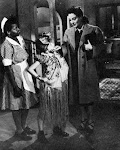.jpg)
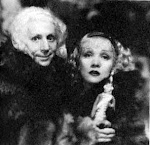+(3).jpg)
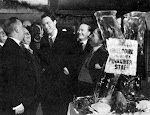+(4).jpg)
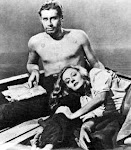+(7).jpg)
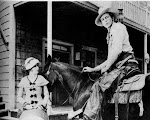.jpg)
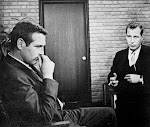+(6).jpg)
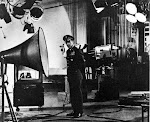+(5).jpg)
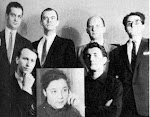.jpg)

